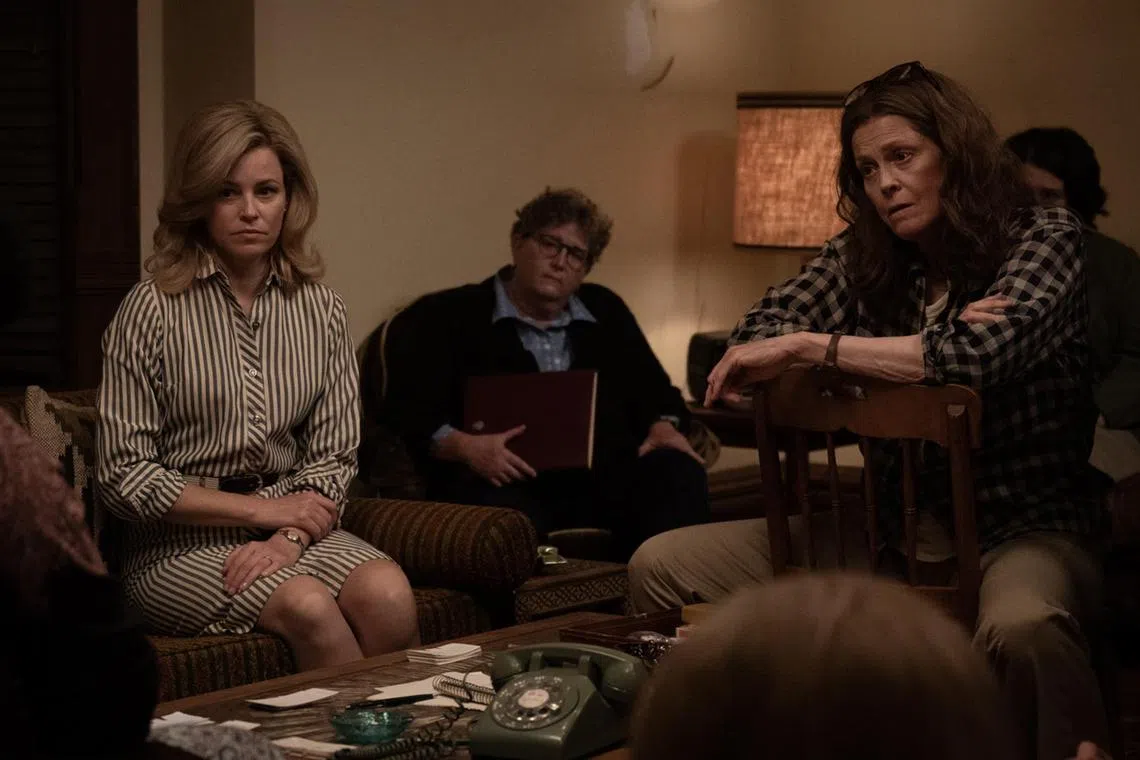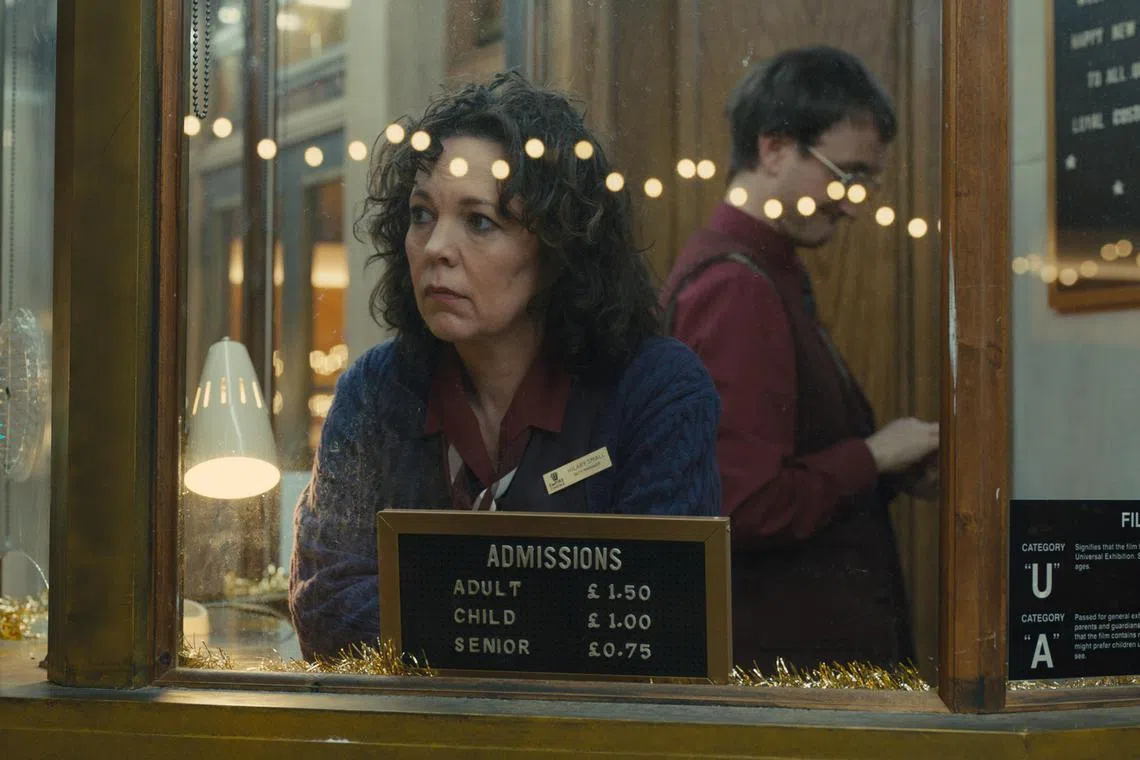At The Movies: Abortion drama Call Jane radiates warmth, Empire Of Light fails to shine
Sign up now: Get ST's newsletters delivered to your inbox

Elizabeth Banks (left) and Sigourney Weaver (right) in Call Jane.
PHOTO: SHAW ORGANISATION
Follow topic:
Call Jane (NC16)
122 minutes, opens on Thursday
3 stars
The story: The Jane Collective was an underground women’s network in Chicago that provided thousands of safe abortions from 1969 to 1973, when the procedure was a felony offence across the United States. Elizabeth Banks stars in this semi-fictionalisation as Joy, a housewife with a life-threatening pregnancy who is initiated into the organisation after turning to it for help.
Call Jane is an upbeat crowd-pleaser that handles the fraught issue of abortion with a light touch without ever making light of it: The surgery scenes with those cold metal instruments are like a horror movie.
Immediately after, the “client” is welcomed into the bustling headquarters of the collective’s hard-bitten founder (Sigourney Weaver) and fed a comforting bowl of spaghetti.
Director Phyllis Nagy was Academy Award-nominated for her Carol (2015) screenplay, about a lesbian liaison. She understands female kinships. The sorority of grassroots activists – every one of them called Jane – is vibrant, and Joy finds a sense of purpose in her growing commitment to their courageous cause. Her attorney husband (Chris Messina) and teenage daughter (Grace Edwards) meanwhile think she is busy with art classes.
Joy is fearful, knowing she is risking everything with her illicit double life.
More than that, though, she is resolute, excited, curious and smart. The layered performance is a career-high by the multi-hyphenate talent Banks, who directed this week’s other new release, Cocaine Bear.
Joy’s personal and political awakening is an inspiring story. At a time when the US Supreme Court has again outlawed abortion, it is also a grim reflection on the fragility of women’s rights.
Hot take: Warm and relatable, Banks shines in an enjoyable abortion drama with important matters on its mind.
Empire Of Light (NC16)
115 minutes, opens on Thursday
2 stars

Olivia Colman in Empire Of Light.
PHOTO: THE WALT DISNEY CO
The story: In an English coastal town circa 1981, a lonely middle-aged cinema manager (Olivia Colman) has a relationship with a young black co-worker (Micheal Ward) and discovers human connection and the healing power of art, cliches like that.
Empire Of Light by Oscar-winning British writer-director Sam Mendes of American Beauty (1999) is set in and around a faded movie house, where the depressive duty manager Hilary (Colman) has returned following a stretch in a psychiatric hospital. How is she to get better, though, when she has a sleazy married boss (Colin Firth) half-coercing her into an affair?
Ward is charismatic as the bright, handsome new hire among the motley staff with demons of his own, namely, the local skinheads and their daily threats of violence.
The improbable pair connect and begin trysting in the disused ballroom, which is dreamily shot by Roger Deakins – the ace cinematographer is on to his 15th Academy Award nomination three years after winning for Mendes’ World War I drama 1917 (2019).
Mendes’ latest is a nostalgic paean to his teenage moviegoing experience. The period recreation is transporting, especially the Art Deco picture palace in its tattered nobility, but such achievements are purely aesthetic. The central May-December black-white romance is contrived.
And whatever Mendes may be trying to say about mental health or the rise of Thatcher-era white nationalism is smothered by the tastefulness, as well as corny homilies like “movie is escape”. Try telling that to Hilary as she heads inevitably towards her melodramatic final-act meltdown.
Hot take: This movie about the magic of movies is itself middling and maudlin.


